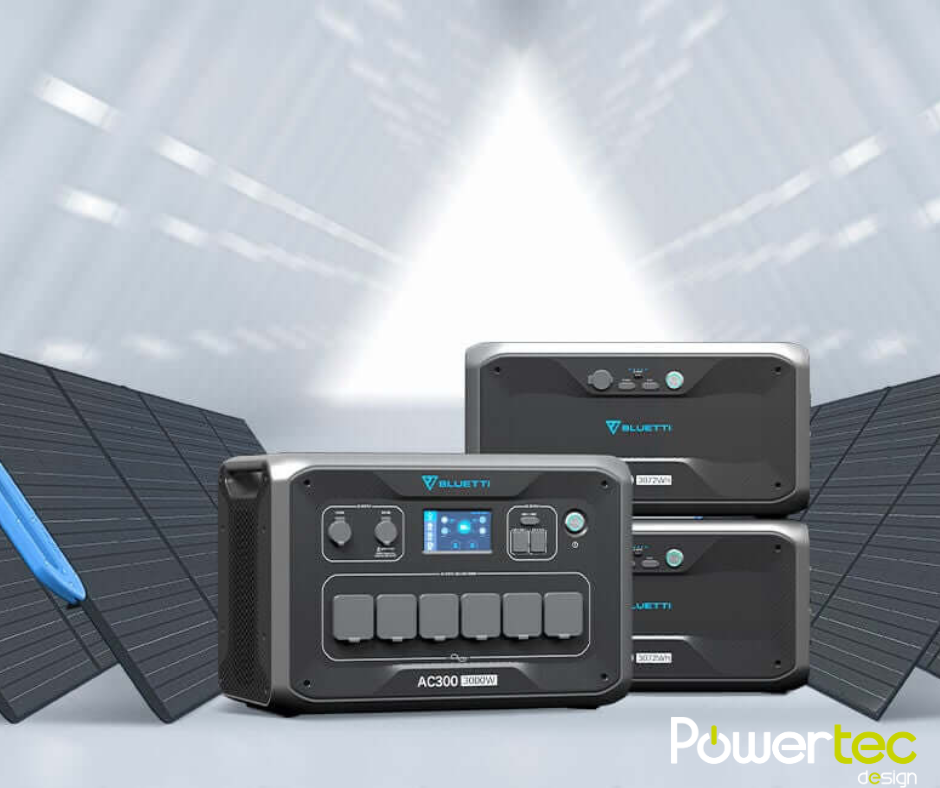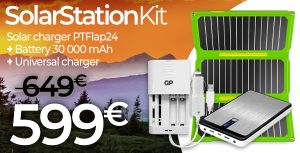The solar kit is gaining popularity in France and around the world because of its many benefits. It helps to reduce energy bills, reduce carbon footprint and achieve greater energy independence.
In this article, we offer a comprehensive guide to solar kits, covering the benefits, available options, installation tips and answers to frequently asked questions. Whether you are a homeowner or a professional, this guide will help you find the right solar kit for your needs and budget.
The advantages of a solar kit
1.1 Reducing energy costs
One of the main benefits is reduced energy costs. By generating your own electricity with solar power, you can lower your electricity bills and save a lot of money in the long run.
1.2 Energy autonomy
Another advantage of solar kits is energy autonomy. By producing your own electricity, you are less dependent on traditional energy providers and less vulnerable to energy price fluctuations.
1.3 Reduced environmental impact
You contribute to the fight against global warming by reducing your carbon footprint. Solar energy is a clean and renewable source of energy that does not produce greenhouse gases.
The different types of solar kits
2.1 Photovoltaic solar kits
Photovoltaic solar kits are composed of solar panels that convert sunlight directly into electricity. They are the most common and suitable for most residential and business applications.
2.2 Solar thermal kits
Solar thermal kits use the heat of the sun to produce hot water. They are generally less expensive than photovoltaic kits, but their energy yield is lower.
2.3 Hybrid solar kits
Hybrid solar kits combine the advantages of photovoltaic and thermal systems. They allow producing both electricity and hot water, thus optimizing the use of solar energy.
Choose the right solar kit for your needs
3.1 Evaluate your energy consumption
To choose the right solar kit for your needs, it is essential to evaluate your energy consumption. You can do this by analyzing your electricity bills over a full year and taking into account your electrical equipment.
3.2 Determining the required power
Once you have estimated your energy consumption, you can determine the power needed. To do this, divide your annual consumption by the number of hours of average sunlight in your area. For example, if you consume 3000 kWh per year and your region has 1800 hours of sunshine, you will need a solar kit with a power of about 1.67 kWp (3000/1800).
3.3 Taking into account local constraints
It is important to take into account local constraints, such as planning regulations, the orientation of your roof and the climatic conditions of your region.
Installing a solar kit
4.1 Preparing the installation
Before installation, it is essential to prepare the installation site. This includes cleaning and repairing the roof if necessary, surveying the building structure to ensure it can support the weight of the solar panels and obtaining the necessary permits from local authorities.
4.2 Calling in a professional
It is recommended that a qualified professional install it. This ensures a safe installation, compliant with current standards and optimized for maximum performance. In addition, some financial aid schemes require that the installation be performed by a certified professional.
4.3 Maintaining your solar kit
Regular maintenance is necessary to ensure the proper functioning and longevity of your kit. This includes cleaning the solar panels, checking cables and electrical connections, and replacing defective components.
Financial aid for the purchase of a solar kit
5.1 The tax credit
In France, the purchase of a solar kit can give right to a tax credit for the energy transition (CITE). This scheme allows you to deduct from your income tax part of the expenses incurred for the purchase and installation of the solar kit.
5.2 Local Grants
Some local authorities offer subsidies to support the installation of solar kits. These subsidies may vary depending on the region, department or municipality and are generally subject to certain conditions.
5.3 Aid from the National Housing Agency (ANAH)
The Agence Nationale de l’Habitat (ANAH) offers financial aid for low-income households wishing to install a solar kit. This aid is granted under the condition of resources and concerns mainly the improvement of the energy performance of the house.
Frequently asked questions
1. How much does it cost?
The cost of a solar kit varies depending on the power, the type of solar panels and the additional equipment. On average, the price of a photovoltaic solar kit is between 1,500 and 3,000 euros per kilowatt-peak (kWp) installed, excluding financial aid.
2. What is the life span of a solar kit?
It depends mainly on the quality of the solar panels and electronic components. In general, a good quality solar kit can last between 25 and 30 years, with a drop in performance of about 0.5% to 1% per year.
3. Can we store the energy produced by a solar kit?
Yes, it is possible to store the energy produced with batteries. This allows you to use solar electricity even when the sun is not shining and further reduces your dependence on the power grid.
4. What is the efficiency of a solar kit?
The efficiency depends on several factors, such as the quality of the solar panels, the orientation and inclination of the roof, and the local climate conditions. On average, a well-installed kit can cover between 30% and 50% of the electricity needs of a French household.
5. Can I resell the electricity produced by my solar kit?
Yes, you can resell all or part of the electricity produced by your solar kit to an energy supplier. To do this, you must enter into a purchase agreement with a supplier and meet certain obligations, such as installing a production meter.
Discover also our portable solar generator : Powertec portable generator charger
Conclusion
In this article, we have provided a comprehensive guide to solar kits, including the types available, installation tips, frequently asked questions, and available financial aid. Whether you are an individual or a professional, this guide will help you find the solar kit that best suits your needs and budget.
The bottom line is that by going solar, you can not only save money, but also help protect the environment.


